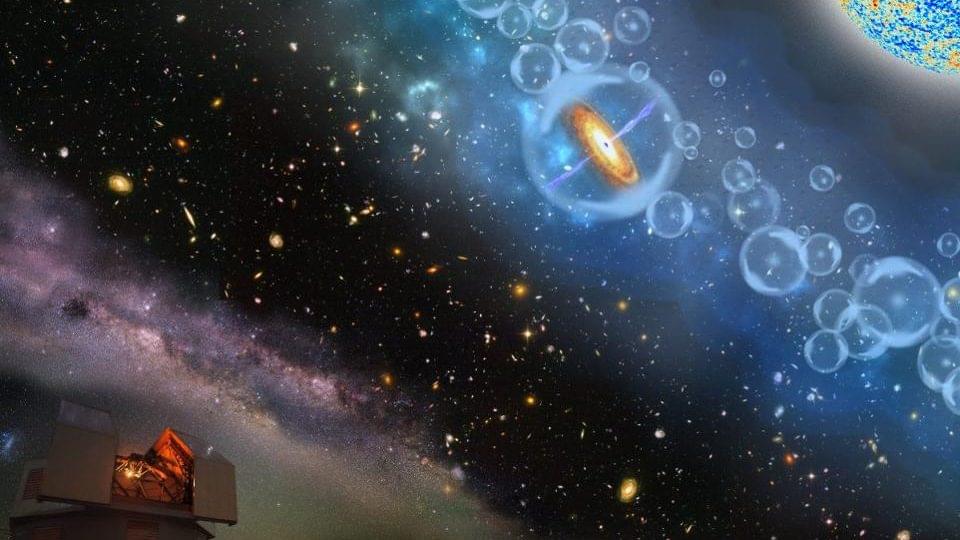But after a few billion years, something fishy begins to occur. Instead of approaching zero, the expansion rate starts to decrease at a slower rate than one would expect, and a distant galaxy’s recession speed doesn’t drop in the same fashion anymore. Once the Universe reaches an age that’s 7.8 billion years after the Big Bang, things start to get weird: these distant galaxies stop slowing down in their recession entirely, and appear to “coast” in the sense that they move away from us at a constant speed from moment-to-moment, as though the expansion had stopped decelerating.
And then, as the Universe continues to age, the recession speeds no longer remain constant, nor do they go back to decreasing. Instead, these distant galaxies appear to recede from us (and one another) more and more quickly. It’s as though some effect is causing the expansion to neither decelerate nor remain constant, but to actually increase and accelerate!










Comments are closed.